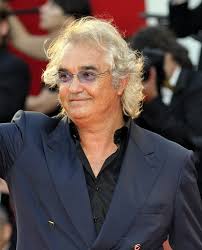Flavio Briatore: A Dive into His Life and Career

Introduction
Flavio Briatore is a prominent figure in the world of Formula 1 and business, known for his controversial yet impactful presence. His journey spans decades, impacting both motorsport and the entrepreneurial landscape. Understanding Briatore’s influence is essential, particularly as the automotive and sporting industries continuously evolve.
Rise in Formula 1
Briatore’s path to fame commenced in the late 1980s when he took on the role of team manager at Renault’s F1 team, where his visionary leadership became apparent. His tenure was marked by strategic decisions that led to remarkable successes in the early 2000s, notably with the drivers Fernando Alonso and Giancarlo Fisichella. Under his management, Alonso won back-to-back World Championships in 2005 and 2006, positioning Renault as a dominant force.
Controversies and Challenges
Flavio’s career has not been without controversy. The infamous ‘Crashgate’ scandal during the 2008 Singapore Grand Prix marred his reputation as allegations emerged regarding race manipulation. His eventual departure from F1 in 2009 was significant, raising questions about ethics in sports management. Despite this setback, Briatore’s influence remains evident, as he later returned to business ventures and sought ways to remain relevant in the motorsport sphere.
Business Ventures
Outside of F1, Briatore has successfully delved into various enterprises, including the establishment of the Billionaire Life restaurant and nightclub chain, among other investments focused on luxury experiences and lifestyle brands. His ability to adapt and innovate in changing markets showcases his entrepreneurial spirit. As the post-COVID-19 world reshapes consumer behaviours, Briatore continues to leverage his brand for growth.
Current Activities and Influence
In recent years, Flavio has resurfaced in the racing community through various media and promotional events. He has openly shared insights into new trends within F1, contributing to discussions around sustainability and technological advancements in racing. His perspectives on the future of motorsport, including electric vehicle racing, are increasingly relevant as the industry shifts towards greener practices.
Conclusion
Flavio Briatore’s life reflects the complexities of sports and business, characterised by triumphs and failures alike. As he continues to evolve within the industry, his story serves as both a caution and an inspiration. For fans and aspiring professionals alike, Briatore’s journey illustrates the importance of resilience, adaptation, and innovative thinking in today’s fast-paced world.








